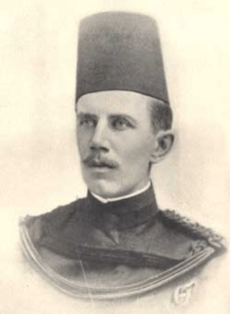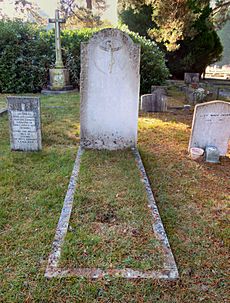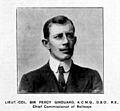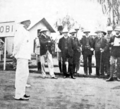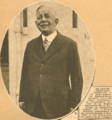Percy Girouard facts for kids
Quick facts for kids
Sir Percy Girouard
KCMG DSO
|
|
|---|---|
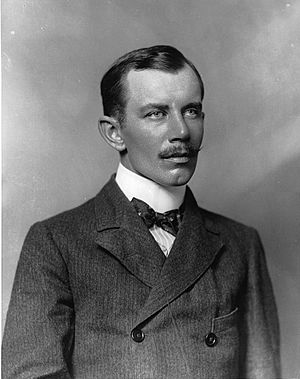
Percy Girouard in 1899
|
|
| High Commissioner of Northern Nigeria | |
| In office 1907–1909 |
|
| Preceded by | Sir Frederick John Dealtry Lugard |
| Succeeded by | Sir Henry Hesketh Bell |
| Personal details | |
| Born | 26 January 1867 Montreal, Canada East |
| Died | 26 September 1932 (aged 65) London, England |
| Civilian awards | Knight Commander of the Order of St Michael and St George |
| Military service | |
| Rank | Colonel |
| Military awards | Distinguished Service Order |
Sir Édouard Percy Cranwill Girouard (born January 26, 1867 – died September 26, 1932) was a famous Canadian engineer. He became well-known for building railways in different parts of the world. He also served as a leader in British-controlled Nigeria and East Africa.
Contents
Early Life and Education
Percy Girouard was born in Montreal, Quebec. His father, Désiré Girouard, was a successful lawyer who later became a politician and a judge. His mother, Essie Cranwill, was an Irish immigrant.
Percy went to school at Collège de Montréal and College St. Joseph. He then studied engineering at the Royal Military College of Canada in Kingston, Ontario. He graduated in 1886. Percy was the first Roman Catholic to earn an engineering degree from the college.
Building Railways Around the World
After college, Girouard worked on the Canadian Pacific Railway for two years. He helped build a section called the "International Railway of Maine." His hard work earned him a great reputation.
In 1888, he joined the Royal Engineers in Britain. He wanted to travel and build railways across the British Empire.
Railways in Sudan and Egypt
From 1890 to 1895, Percy managed the Woolwich Arsenal Railway in Britain. Then, in 1896, he joined the Dongola Expedition in Sudan. A famous British general, Kitchener, asked Percy to build a railway. This railway would help the British army move supplies and soldiers.
Building a railway in the desert was very difficult. There were attacks from local groups called the Ansar. The workers were Sudanese and had to be taught everything about railways. Sometimes, heavy rain washed away the tracks. A serious illness also affected many workers.
Percy set up two schools to train his Sudanese workers. They learned how to be station masters and signalers. Winston Churchill, a famous British leader, praised Percy's amazing planning skills. He said Percy thought of everything needed to build the railway.
In 1897, Kitchener asked Percy to build another railway. This one went 235 miles across the Nubian Desert. It was a risky project because it was far from the Nile River, where gunboats could protect the workers. But Percy took on the challenge.
He often traveled along the railway, checking on the work. He even went to Britain and the United States to buy stronger locomotives (train engines). He also borrowed some from Cecil Rhodes, a rich businessman in South Africa. Rhodes dreamed of building a "Cape to Cairo Railway" across Africa. He wanted to help Kitchener conquer Sudan to make his dream possible.
Percy was known for not being afraid to disagree with Kitchener. Even though they had different ideas sometimes, Kitchener never fired him. The railways Percy built helped Kitchener's army defeat the Ansar forces in 1898. For his service, Percy received the Distinguished Service Order (DSO). He was also put in charge of the Egyptian State Railways.
Railways in South Africa
In 1899, Percy went to South Africa. The Boer War (1899–1902) had just started. He became the Director of Imperial Military Railways. He was responsible for all the railway lines used by the British army.
Percy quickly rebuilt damaged tracks and found clever ways to get around destroyed bridges. This helped the British army move quickly and capture Pretoria. He was recognized for his excellent work and was knighted in 1900. This meant he became "Sir Percy Girouard." Kitchener called him an "officer of brilliant ability."
After the war, Percy stayed in South Africa as the Commissioner of Railways. He left in 1904 due to disagreements about railway costs.
Leading in Nigeria and East Africa
In 1906, Winston Churchill helped Percy become the High Commissioner in Northern Nigeria. Percy was in charge of building another railway, this time from the Niger River to the city of Kano. He also worked to prevent private ownership of land in Northern Nigeria.
From 1909 to 1912, he served as the Commissioner of the British East Africa Protectorate (now Kenya). He was involved in a controversial decision to move the Maasai people. This led to disagreements with the Colonial Secretary, and Percy resigned in 1912.
After leaving his government roles, Percy became a managing director at Armstrong Whitworth. This company built weapons and ships.
Later Life
During World War I, in 1915, Percy briefly returned to government work. He advised on making munitions (military supplies) for the British army. However, he preferred working in business and soon returned to Armstrong's.
Sir Percy Girouard passed away in London, England, in 1932. He is buried in Brookwood Cemetery in Surrey.
Family
In 1903, Percy married Mary Gwendolen Solomon. They had one child, Richard Desire Girouard. Richard's son, Mark Girouard, became a well-known writer and architectural historian.
Legacy
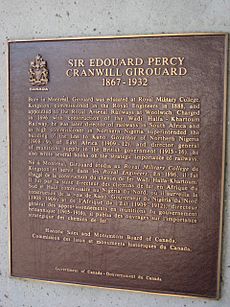
- Mount Girouard, a mountain in Banff National Park, Alberta, was named in his honor in 1904.
- The Girouard Academic Building at the Royal Military College of Canada was named after him in 1977.
- A plaque honoring Sir Percy Girouard was placed at the Royal Military College of Canada in 1985. It highlights his work as a railway builder and colonial leader.
Percy Girouard's career shows how some French Quebecers were loyal to the British Empire during his time.
Images for kids
 | Charles R. Drew |
 | Benjamin Banneker |
 | Jane C. Wright |
 | Roger Arliner Young |


